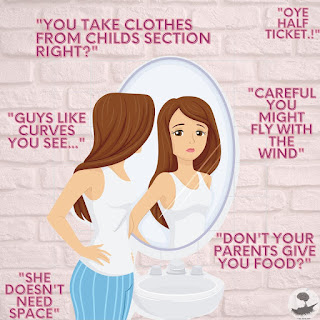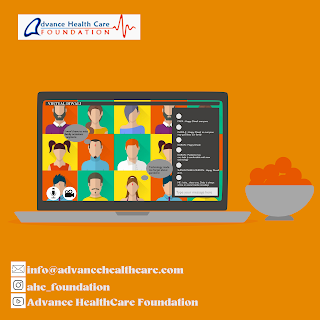Pride Month
THROUGH THE NOT SO ROSE-TINTED GLASSES OF LIFE
Pride
\ ˈprʌɪd \
a feeling of deep pleasure or
satisfaction derived from one's own achievements, the achievements of those
with whom one is closely associated, or from qualities or possessions that are widely
admired.
Through the years, even as we venture through the 21st century, sexual orientation has been a racy taboo. Put under the scrutiny of society, the LGBT community have yet a hard time expressing themselves fully without having to go through the inevitable stigma. A topic rather influential today, but still deemed illegal in some parts of the world, is quite revolting
“Any male person who, in
public or private, commits, or abets the commission of, or procures or attempts
to procure the commission by any male person of, any act of gross indecency
with another male person, shall be punished with imprisonment for a term which
may extend to two years.”
Section 337A of Singapore’s penal code
There was
not one anti-discrimination laws imposed in Singapore, Bangladesh, Bhutan,
Maldives, Pakistan, Sri Lanka, Brunei, Malaysia, and Myanmar to protect the
LGBTQ+ community. Consequently, many chose to live a life under the shadows,
once again dissolving their identity in a tight, conservative society.
Living as a
trans in Singapore, Kaeden, faces a large amount of stigma on a daily basis.
Kaeden recalls his school days, where he felt out-of-place living as a female,
Kaeden always identified as a male, having felt uncomfortable in the strict
uniform of skirts. Kaeden remembers an instance, a few weeks after conforming
to being trans, his teachers kept on calling him through a name that was “dead”
to him as it was what remained of her old identity, but the teachers in turn,
rather than supporting her, harassed her into retaining that old name because
in their words “she could never change who she was”. Kaeden still feels
distraught recollecting this situation that she had been through, a child must
never experience something such as this.
In such
situation, many have been crippled with depressing thoughts, poking at mental
health of many vulnerable individuals. The ever-going pressure on the young or
the old to adhere to social standards have made these individuals susceptible
to mental problems, and this has become a large concern. The most common mental
health concerns include:
· Anxiety disorders, including panic
attacks
· OCD: Obsessive Compulsive Disorder
· Depression (Homosexuals and
Depression: Help for Gays with Depression)
· Suicidal feelings and acts (Gay and
Lesbian Suicide: Options to Cope)
· Self-harm
· Substance use and abuse
· Bipolar disorder
This often
stems from the individual’s childhood or teenagerhood which carries well on
into their adulthood, there also exists the risk of depression, mood disorders,
alcohol/drug use and abuse and indulging in risky behaviours. Much of this is
attributed to the stigma attached to their sexuality and peer pressure, with
the fear of not being accepted and treated as outcasts by their friends,
family, teachers, co-workers, etc. Along with the fear of being bullied or
ostracised at some points. This is known as “minority stress”. This has become
even more prevalent among LGBTQ youth. A study conducted in 2018 found that
transgender youth experience mental health diagnoses at higher rates than their
peers.
LGBTQ youth
were 1.75 times more likely than their peers to experience symptoms of anxiety
and depression. These rates were even higher among trans and nonbinary youth
who were 2.4 times more likely to fall into depression or face anxiety. Respondents
also reported that due to the previous lockdown procedures, they felt more
exposure to stigma, especially, in the case of quarantining with unsupportive
family members
The figure
was even higher among trans and nonbinary youth, as they were 2.4 times more
likely to face anxiety or depression.
Respondents
report that due to lockdown procedures, many felt more exposure to stigma. In
many cases, quarantining with unsupportive family members accelerated their
anxiety. More than a third sad they were unable to be themselves at home, and
around 16% felt unsafe at home. 1 in 4 also said that they were unable to have
access to mental health care institutions.
Students,
even teachers, who identify as LGBTQ should not be ostracised from society,
rather accepted as who they are. Transphobia, or Homophobia, should not be
something that either of the communities existing should face. Such offences
should not be tolerated at all but should be met with dire consequences.
On the other
side, even though very few countries are open to the LGBT community around the
world, Thailand has been one of the most accepting countries in Asia for the
LGBTQ. Thailand is well known for its many trans women or “ladyboys”, locally
known as “kathoey”. With rising TV shows
and movies, the LGBTQ community has made its mark many a times. However, The
Thai still face many obstacles and hurdles, especially transgenders still face
higher discrimination compared to cisgender people in education, recruitment
and even in the workplace, and some even claim to have lower pay than their
cisgender colleagues.
Thailand is now becoming even more hospitable to their gay and lesbian population, with the Thai government’s approval for same-sex civil partnership bill to increase the legal rights of gay and lesbian couples. In April 2021 after a Thai gay couple received death threats from Indonesian internet users for posting photos of their wedding, a wide wave of online support and affection for the couple from Thai netizens and the Thai media, showed the widespread acceptance in Thai towards its LGBT community.
In India, however, it remains a road full of thorns and roses. In 1977, Shakuntala Devi published the first study of homosexuality in India, called “The World of Homosexuals”. It asked not for tolerance or sympathy but for the full and complete acceptance.
During the
1960s and early 1970s, homosexuality was categorized as a mental disorder.
Homosexuality as a mental disorder was struck down from the second edition of
the Diagnostic and Statistical Manual of Mental Disorders by the American
Psychiatric Association in 1973. It took more than two decades for the WHO (World
Health Organization) to recognize homosexuality as normal. The mainstream
society even today, still looks down upon same-sex marriages, perceiving it as a
feat against nature. This situation wasn’t much better in India, the supreme
court in 2013 criminalized homosexuality. But it was overturned in 2018, which
led to celebrations getting rid of the shackles that burdened this community. Yet,
the country was indifferent to its queer community straining their mental
health which is still quite a taboo.
Even though,
we might not have achieved what we want in our mission, we still have a long
way to go. To remove stigma and stereotypes surrounding the LGBT community, it
is not just one of us, but all of us together that can remove what has clouded
our vision and open our minds to a topic that must not be hindered in any
ways. A law cannot change people’s
mindsets or understanding, what one must realise is that each one of us are
humane, unique to our quirks and it is not right to judge one’s preference on
what one solely believes in. It is a time where acceptance and understanding
must come to be acknowledged. Hostility towards the community has not
undermined it, rather made them stronger and strengthened their bonds to fight
against the social stigma that they face every day.
(By Laural Jacob and Aanya Narula, Editorial Department, Adolescence Development Club)




Comments
Post a Comment